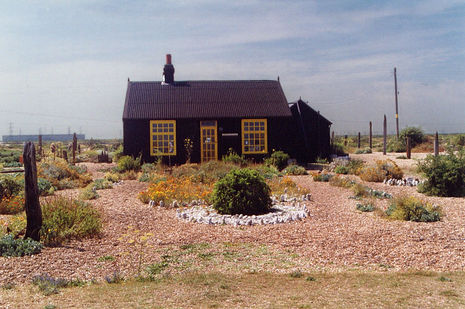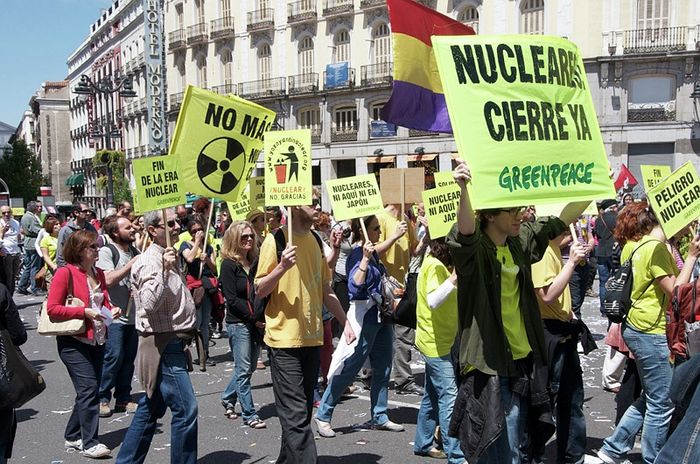Monkeypox’s fine line: lessons from our past
Messaging must target the queer community without assigning blame, says Jude Jones

The Sun’s 1985 headline proclaiming that “I would shoot my son if he had AIDS” has become emblematic of a generation’s attitude towards HIV/AIDS. First recorded in Britain in 1981 and reaching its nadir at the height of Thatcher’s infamously homophobic premiership, HIV’s effects on the West’s queer liberation movement — only just gathering tangible momentum in Stonewall’s wake — were catastrophic. Gay men were murdered in the streets, public attitudes were set back by decades, and Britain’s political climate became so hostile that some labelled it genocidal. “I wouldn’t wish the eighties on anyone,” reflected queer writer-filmmaker Derek Jarman on the period. Within two years of writing these words, he too was dead, another voice lost to the virus.
“Messaging about monkeypox must be targeted, but it must also avoid the stigmatisation that saturated our HIV messaging”
The global rise of monkeypox, a disease in which 98% of diagnoses have been gay and bi men, has unsurprisingly resurrected much of this trauma. And, as homophobia and queerphobia become increasingly prevalent and increasingly normal in right-wing political circles, such anxiety hardly seems unfounded. In the United States, where more than 7,000 monkeypox cases have been reported, the Republicans’ radical wing has already jumped at the chance to weaponize monkeypox against gay men, attacking them for their perceived sexual promiscuity — “[k]eep your legs closed,” tweeted American commentator Kathy Barnette — or worse: “[i]f Monkeypox is a sexually transmitted disease, why are kids getting it?’ Georgia’s Rep. Marjorie Taylor Greene asked her one-million Twitter followers. The implications, drawing on an alt-right mythology of gay men as sexual predators, are not difficult to decipher.
Monkeypox numbers in the UK remain relatively low and are still very much manageable. However, given the Tories’ recent track record on handling health emergencies and a leadership race that has turned ‘the woke queer mob’ into its prodigal bogeyman, this can only provide so much ease of mind. Our political prospects seem bleak at the best of times: between Truss’ laughable Thatcher cosplaying and Sunak’s pledges to functionally revive Section 28, strangely reminiscent of those of the 1980s, even if only in a semi-parodic, fun-house-mirror-reflection sort of way. Yet, as Owen Jones recently reminded us, the key to tackling this outbreak will be refusing to let any fears of social relapse into the anti-queerness of yesteryear overwhelm us. The unfortunate reality is that gay men are currently at drastically greater risk of contracting monkeypox and this truth must be acknowledged, even if it brings back nauseating memories of the HIV years at such an uncertain time for queer rights globally.
So, messaging about monkeypox must be targeted, but it must also avoid the stigmatisation that saturated our HIV messaging. ‘Don’t Die of Ignorance’ warned the Tories’ first HIV-prevention campaign, implicitly blaming the crisis on gay mens’ ‘ignorance’ and legitimising the homophobic hysteria of the British public. In similar vein, giving the illness a face will only drive further bigotry, as was shown by COVID-19 era spikes in anti-Asian hate crimes, the inevitable product of a right-wing rhetoric that rechristened the illness the ‘China virus’ and blamed its upsurge on East Asian eating habits. Such harmful discourses must be resisted.
However, ignoring the 98% statistic would be an equally reckless, and very likely more dangerous, mistake to make. Here we find monkeypox’s fine line: messaging must target the queer community without putting targets on the queer community, without assigning blame or suggesting that monkeypox is some sort of group-exclusive illness, a ‘heat-seeking missile’ for sexuality, in Jones’ words. This is a delicate balance, sure, but one that must be reached if we are to protect queer people and avoid repeating the mistakes of the past.
“We must be prepared to be vigilant once more and to take it upon ourselves to act”
And so I conclude by returning to Jarman. Finishing a book he knew would be his last from a gaunt wooden cottage amidst Dungeness’ dystopian coast-scape, he inscribed a final message of hope to future generations of gay men:
’I am tired tonight […] but as I leave you Queer lads let me leave you singing. I had to write of sad times as a witness —not to cloud your smiles — please read the cares of the world that I have locked in these pages.
And after, put aside this book and love.’
We must not forget the trauma of HIV, but we must not let it haunt us either. We know what monkeypox is, its prognosis and how to treat it; we know precisely what to do. In the 1980s, it was our queer community’s hypervigilance that kept Britain’s transmissions rates relatively low (although inevitably still catastrophic), with extensive grassroots initiatives spreading preventative information being organised as early as 1982, four years before the government made any comparable efforts. Some of these groups, like the Terrence Higgins Trust, still operate today.
Monkeypox, in all likelihood, will never reach HIV levels, but we must be prepared to be vigilant once more and to take it upon ourselves to act. Already, many queer influencers are flaunting their vaccination statuses on social media and encouraging others to follow suit, a step, however humble, in the right direction. Our greatest asset is our community, because it is here that we can find near-boundless strength, hand-in-hand with near-boundless love. And so long as we work to protect each other, neither can be taken away. Not by a virus, and not by our fellow men.
 Comment / The (Dys)functions of student politics at Cambridge19 January 2026
Comment / The (Dys)functions of student politics at Cambridge19 January 2026 News / Local business in trademark battle with Uni over use of ‘Cambridge’17 January 2026
News / Local business in trademark battle with Uni over use of ‘Cambridge’17 January 2026 Features / Exploring Cambridge’s past, present, and future18 January 2026
Features / Exploring Cambridge’s past, present, and future18 January 2026 News / Your Party protesters rally against US action in Venezuela19 January 2026
News / Your Party protesters rally against US action in Venezuela19 January 2026 Arts / Exploring Cambridge’s modernist architecture20 January 2026
Arts / Exploring Cambridge’s modernist architecture20 January 2026








